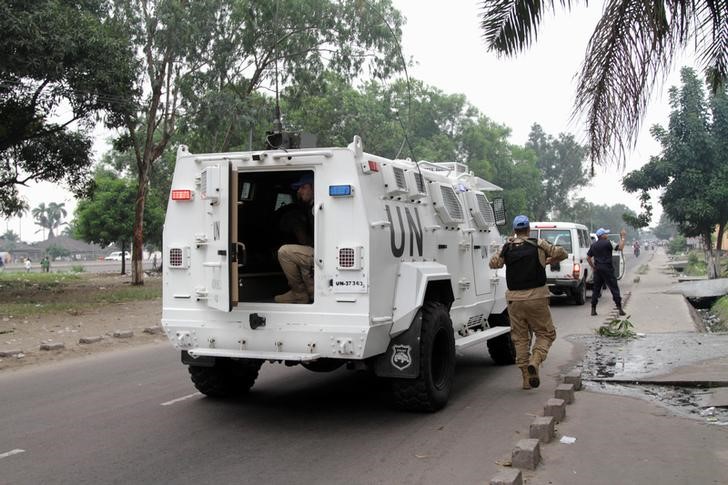By Michelle Nichols
UNITED NATIONS (Reuters) - The U.N. Security Council on Friday cut the troop cap by 18 percent for its peacekeeping mission in Democratic Republic of Congo after reaching a compromise with the United States, which wanted a bigger cut to the largest and most expensive operation.
The 15-member council unanimously renewed the $1.2 billion mission for another year with a troop cap of 16,215 amid U.N. warnings that violence was spreading across the central African state ahead of elections this year.
France had proposed 17,000, while the United States wanted 15,000, diplomats said. There are 16,893 soldiers on the ground after previous U.N. chief Ban Ki-moon reduced the troop level in 2015 and 2016.
Despite a request by Secretary-General Antonio Guterres to add two extra police units (320 officers) the council agreed to a Washington demand to keep the current total of 1,050 officers.
The resolution asks Guterres to explore "transfers of troops and their assets from other United Nations missions to MONUSCO" if needed and subject to council approval.
It is the first peacekeeping mission to be renewed since U.S. President Donald Trump proposed that Washington, the largest U.N. contributor, cut funding. U.S. Ambassador Nikki Haley is reviewing the 16 U.N. peacekeeping operations.
"It's not the number of people we have on the ground, it's the quality of the work that's happening on the ground," Haley told the council after the Congo vote.
Washington provides the most money for the total $7.9 billion U.N. peacekeeping budget, paying 28.5 percent, but Trump and Haley want to enforce a 25 percent cap.
The council has asked Guterres to report by the end of September on options for reducing the peacekeeping mission after elections this year, President Joseph Kabila has stepped down and sustainable progress has been made in reducing the threat of armed groups in the country.
Resource-rich Congo, which gained independence from colonial power Belgium in 1960, has never had a peaceful transition of power and Kabila's refusal to stand down when his final term expired in December has raised fears the country could slide back into civil war.
Opposition leaders signed a fragile deal with the ruling coalition and allies of Kabila on Dec. 31 that requires him to step down after elections that must happen by the end of 2017.
The Security Council held a minute silence to honour two U.N. investigators whose bodies were found this week in Kasai Central province.
